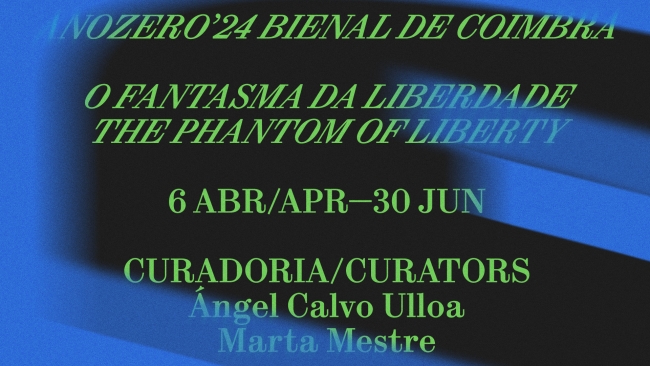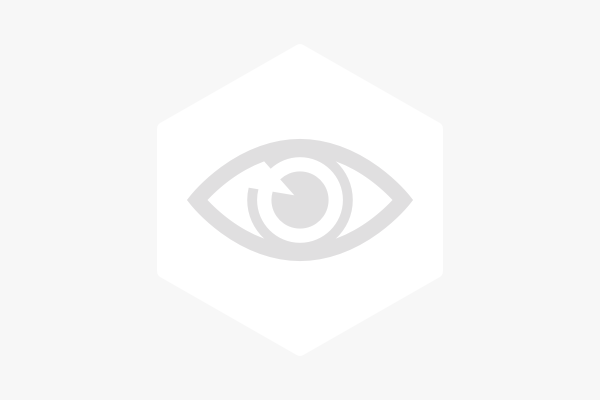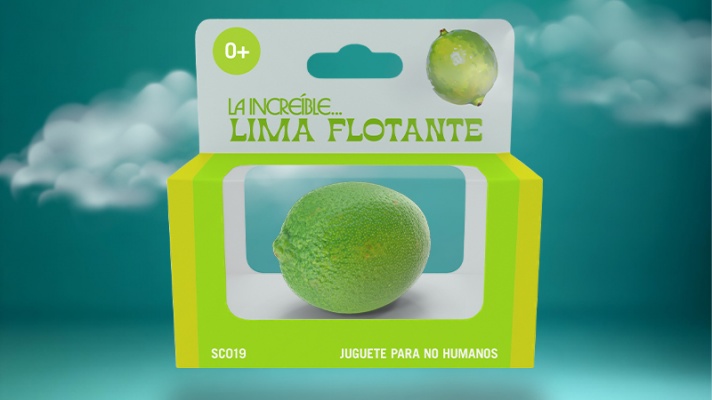Descripción de la Exposición
Lista de Artistas | List of Artists
Ana Pi, Aurélia de Souza, Beatriz Santiago Muñoz, Candice Lin & P. Staff, Carlos Bunga, Christian Nyampeta + Obi Okigbo, Daniel Steegmann Mangrané, Diana Policarpo, Elisabetta Benassi, Elise Florenty & Marcel Türkowsky, Em’kal Eyongakpa, Euridice Kala, Filipa César, Marinho de Pina, Marta Lança, Gabriel Chaile, Jarbas Lopes, Jesse Darling, Jessica Warboys, Joana Escoval, Julie Béna, Lastenia Canayo (Pecon Quena), Laura Huertas Millán, Laura Lamiel, Louidgi Beltrame, Maja Escher, Mané Pacheco, Mary Beth Edelson, Meris Angioletti, Minia Biabiany, Musa paradisiaca, Nelson Pereira dos Santos, Paul Mpagi Sepuya, Ru Kim, Sarah Maldoror, Seyni Awa Camara, Sónia Vaz Borges, Vivian Suter, Yoan Sorin
______________
Whit the title Meia-noite (Midnight) the fourth edition of the Anozero’21-22 — Coimbra Biennial of Contemporary Art is curated by Elfi Turpin and Filipa Oliveira.
The main venue of the Biennial is Mosteiro de Santa Clara-a-Nova, a primitive monastery rebuilt in Baroque style in 1649, and its exhibition develops through five other iconic places in the city: the Estufa Fria (glasshouse) of the Botanical Garden of the University of Coimbra, Teatro Casa de São Bernardo, Rua Estrela, and the galleries CAPC Sereia and CAPC Sede.
The program of Anozero’21-22 started in November 2021, with Meia-noite part 1, an exhibition-conversation in an installation created by Carlos Bunga for Sala da Cidade in Coimbra, and films by Beatriz Santiago Muñoz, Marguerite Duras, Sarah Maldoror, and Elise Florenty & Marcel Türkowsky. Carlos Bunga’s installation also hosted a set of African sculptures from the Science Museum of the University of Coimbra and a screen on which the four films will be projected. Each film session launched an invitation to different groups of the community to discuss themes researched and developed in the Biennial, such as diversity, equality, social justice, and knowledge production, poetic relationships between species and beings, and the night as a space of resistance. This first exhibition-conversation was a call for participation and discussion, aiming to include the audience in the process of developing a Biennale deeply rooted in its community. Meia-noite approaches art as an inclusive place, a common good, a tool for confronting realities, and a space where collective history is written and practiced from numerous points of view.
The program of Anozero Biennial develops the central theme and exhibition into three more areas of dialogue between artists, and between artists, local communities, and visitors: Activation, Publishing, and Converging. The Activation Program promotes conversations between different communities, through mediated activities such as guided tours, workshops, and open classes. Publishing is of high relevance in the Biennial, comprising a catalogue edited in two parts: a first, with texts, dreams, and reflections about Anozero and its artists, and a second, which will consist of a visual essay that documents the works created and presented in Meia-noite. The Converging Program hosts a set of parallel activities proposed by artists and art organizations, such as exhibitions, performances, and other events, and it aims to deepen the research on the central theme by strengthening ties and building new connections with the local production.
Anozero – Coimbra Biennial of Contemporary Art is an initiative of the Círculo de Artes Plásticas de Coimbra. It is organized in conjunction with the Coimbra City Council and the University of Coimbra and was first presented in 2015. Its prime goal is to foster reflection around the circumstances that led to the University of Coimbra – Alta, and Sofia being classified by UNESCO as World Heritage. This fourth edition of the Biennial is one of the highlights of the France-Portugal Season 2022 taking place in Portugal.
"The Joanine Library—a pearl of the Baroque and a treasure of the University of Coimbra—was built as an imperialist gesture that aimed to encapsulate knowledge and flaunt colonial dominion. This fortress of knowledge (and power) is also the refuge of a small colony of bats that found there the ideal conditions to set up a house. Under the cover of the nightly silence, the bats prey on the insects and larvae that would otherwise munch through the library’s 55,000 books. The night is their time of freedom, the moment when they come out of their hiding places and start working on the conservation of our shared estate. For us, the fact that there are bats living in the Joanine Library was a spark that triggered a cascade of thoughts. We hope that they can offer the same inspiration to everyone that visits the Biennial.
In our critical idealization of Meia-noite, we imagine the night as a fluid space, a space for breaking norms, open to other visions, knowledges, interactions, and bodies. We envision it as a space of resistance and freedom, a political, metaphysical, and experiential place. Here, the night is a territory for symbiotic relationships between humans and other beings, a place for co-dependency and co-evolution. In this perspective, the night fascinates us with its plural capacity to “transvalue” universal normative categories.
The university is, pre-eminently, a place of knowledge and power. If libraries are the epitome of (a certain protected kind of) knowledge, and bats the embodiment of darkness, here we find them in a relationship of mutual dependence. Both the library and the bat become political subjects. A central idea of our research for Meia-noite was how to question the production of knowledge embodied by the Joanine Library. How can we propose alternative epistemologies? How can we learn from the intelligence of bats? How can we imagine other forms of interaction?
Our intention was to free ourselves from the narratives and normative dualism of modern thought that fracture our contemporary society and produce an imbrication of discriminations: racism, classism, sexism, ageism, ableism, to name just a few. With this in mind, we applied methodologies that help us to experiment with creative, unexpected, and marginal modes of knowledge production. We placed the eyeglasses of these Coimbra bats over our feminist ones and invited a group of artists to share their artistic and critical tools with us. Tools that multiply and connect worlds, that come from some existing place after the patriarchy: tools of the future.
Inspired by the night, this proposal for Anozero’21-22 is an attempt to open a speculative fissure, one that does not propose any answers but raises many questions. It is an attempt to invent other modes of existence, of relating, of being, and living together." —Elfi Turpin & Filipa Oliveira, curators

Exposición. 09 abr de 2022 - 26 jun de 2022 / Varios espacios de Coimbra / Coimbra, Portugal

Exposición. 09 abr de 2022 - 26 jun de 2022 / Varios espacios de Coimbra / Coimbra, Portugal

Exposición. 09 abr de 2022 - 26 jun de 2022 / Varios espacios de Coimbra / Coimbra, Portugal
Ver los 6 eventos relacionados

Exposición. 16 abr de 2025 - 11 may de 2025 / Centro Botín / Santander, Cantabria, España

Formación. 08 may de 2025 - 17 may de 2025 / Museo Nacional Centro de Arte Reina Sofía (MNCARS) / Madrid, España